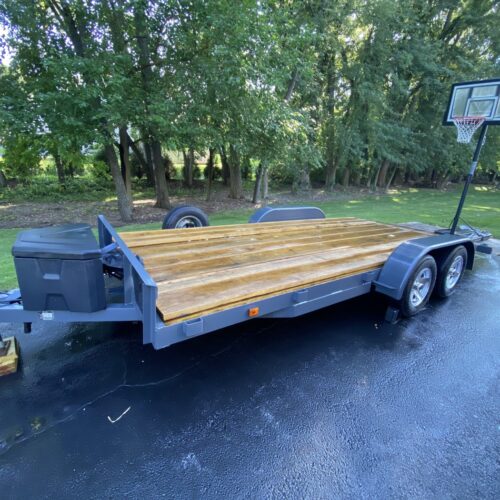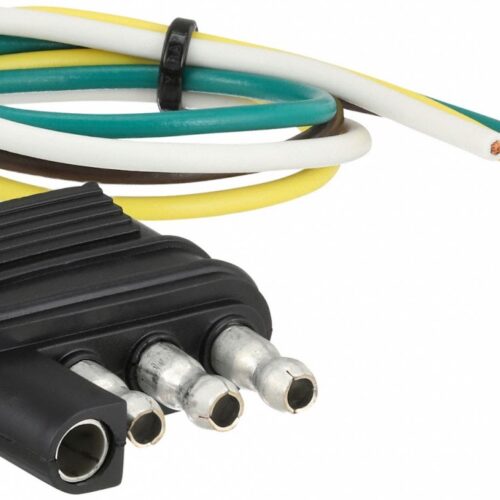If you’re planning to tow a trailer in Tennessee, understanding the state’s specific towing laws is crucial for a safe and legal journey. Whether you’re transporting goods for business or heading out on a recreational adventure, adhering to these regulations will ensure you’re compliant with state requirements and help you avoid fines and penalties. Here’s a comprehensive guide to Tennessee’s trailer towing laws.
1. Trailer Registration and Titling
In Tennessee, all trailers must be registered with the Department of Motor Vehicles (DMV). Here’s what you need to know:
- Registration: All trailers must be registered, which involves filling out an application, providing proof of ownership, and paying the applicable fees.
- Titling: Trailers with a gross weight over 4,000 pounds must be titled. The title serves as proof of ownership and is necessary for selling or transferring the trailer.
2. Weight Limits and Load Requirements
Adhering to weight limits and load regulations is essential for safe towing:
- Gross Vehicle Weight Rating (GVWR): Ensure that your trailer’s GVWR does not exceed the towing capacity of your vehicle. Check the manufacturer’s specifications for both your vehicle and trailer.
- Load Distribution: Properly distribute the load on your trailer to maintain balance and prevent swaying. Ensure that heavier items are placed over the axles and secured to prevent shifting during transit.
3. Hitch and Safety Chains
Tennessee law mandates the use of proper hitches and safety chains:
- Hitch Requirements: Use a hitch that is rated for the weight of your trailer. The hitch must be securely attached to your towing vehicle and inspected regularly for wear and tear.
- Safety Chains: Always use safety chains in addition to the hitch. The chains should be crossed under the trailer tongue to prevent it from hitting the ground if the hitch fails. Ensure that the chains are long enough to allow turning but not so long that they drag on the ground.
4. Trailer Brakes
For trailers with a certain weight, brakes are required:
- Brake Requirements: Trailers with a gross weight of 3,000 pounds or more must have brakes on all wheels. The brake system must be capable of controlling the trailer and stopping it effectively.
5. Lighting and Reflectors
Proper lighting and reflectors are essential for visibility and safety:
- Tail Lights and Brake Lights: Your trailer must have functioning tail lights, brake lights, and turn signals. These lights should be visible from at least 500 feet away.
- Reflectors: Trailers must have reflectors on both sides and the rear. The reflectors enhance visibility, especially at night or in low-light conditions.
6. Speed Limits and Lane Usage
When towing a trailer in Tennessee, be aware of specific speed limits and lane usage rules:
- Speed Limits: The maximum speed limit for vehicles towing trailers is 55 mph on highways and 45 mph on other roads unless otherwise posted.
- Lane Usage: On highways with three or more lanes, vehicles towing trailers should use the rightmost lane, except when passing or preparing for a left turn.
7. Insurance and Liability
Be sure your trailer is adequately insured:
- Insurance Coverage: Verify that your auto insurance policy covers trailer towing. Some policies may require additional coverage for trailers.
- Liability: Be aware that as the driver, you are liable for any damages or accidents caused by your trailer. Ensure that you have sufficient liability coverage to protect yourself financially.
Conclusion
Understanding and adhering to Tennessee’s trailer towing laws is essential for a safe and legal towing experience. Make sure your trailer is properly registered, equipped, and maintained, and always follow the state’s regulations regarding weight limits, hitching, braking, and lighting. By doing so, you’ll not only ensure your safety but also contribute to the safety of others on the road.
For more detailed information or specific questions, visit the Tennessee Department of Motor Vehicles website or contact a local DMV office.
For more specific details, you can refer to the Tennessee Trailer Requirements.




